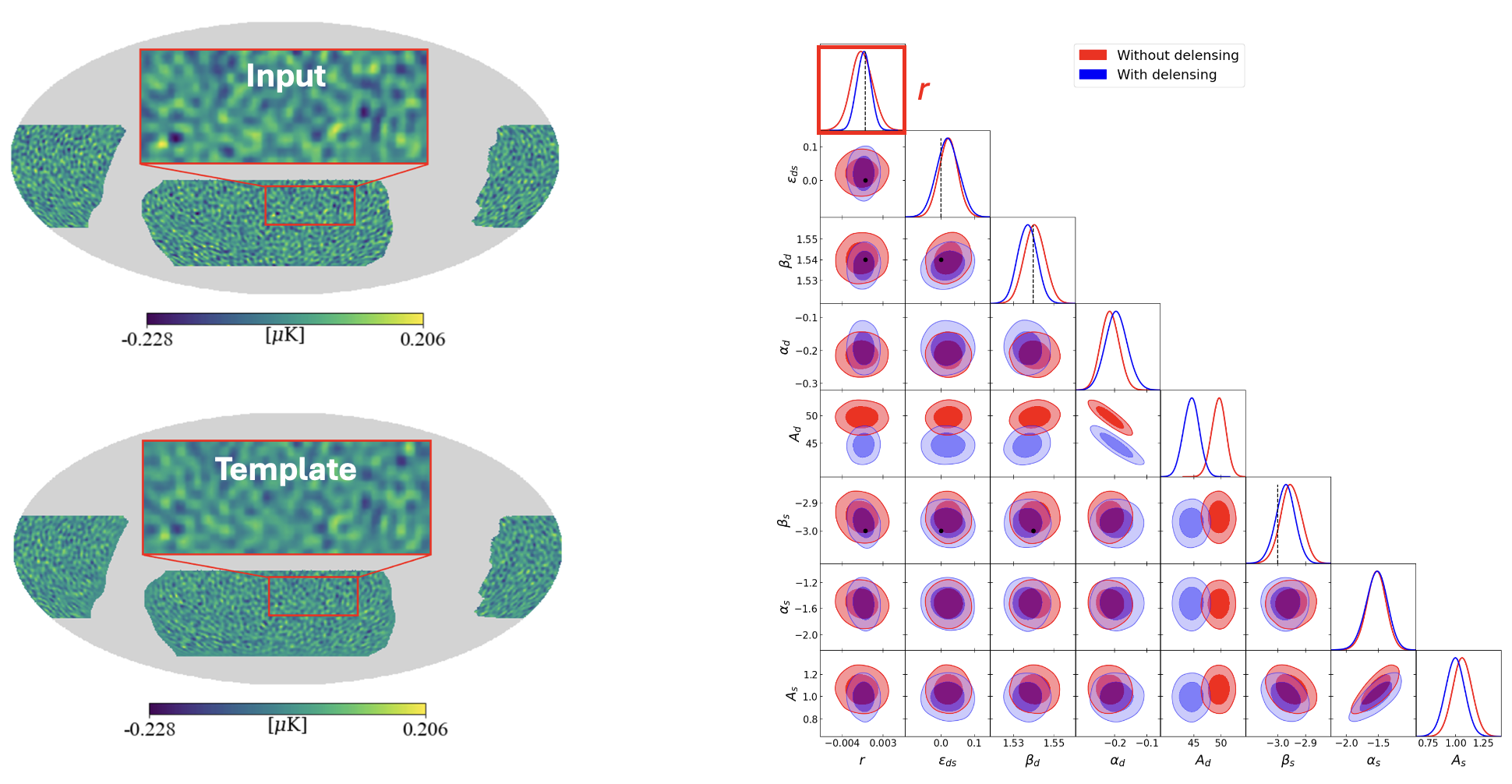Projects
B-mode delensing for the Simons Observatory
University of Cambridge & Simons Observatory Collaboration, supervised by Anthony Challinor and Blake Sherwin
The Simons Observatory (SO) will target B-mode polarization anisotropies in the CMB to infer the tensor-to-scalar ratio (amplitude of inflationary gravitational waves). This faint signal must be disentangled from much brighter emissions by our own Galaxy, and from secondary B-modes produced by weak gravitational lensing. During my PhD, I worked on a pipeline performing both foregroung cleaning and delensing simultaneously, aiming to go from sky maps to unbiased and precise constraints on inflationary physics. The methods and results are presented in detail in this paper.
- The following code estimates the lensing deflection field from a combination of CMB maps and external data, and builds a template of the lensing B-modes.
- The main analysis pipeline then takes observed sky maps and the lensing template as inputs, and outputs posterior distributions for our model parameters. We use maps in 6 frequency channels to constrain and clean Galactic foregrounds.
- Demonstration on simulated maps: the template accurately captures the true lensing B-modes, and including it in the analysis leads constraints on the tensor-to-scalar ratio to visibly tighten.

Lattice simulations of false vacuum decay
University of Cambridge & QSimFP Consortium, in collaboration with Hiranya Peiris and Alex Jenkins
Model-independent anomaly detection in gravitational waves
EPFL LPPC, supervised by Sergey Sibiryakov and Inar Timiryasov
Time-delay cosmography with strongly lensed quasars
EPFL LASTRO, supervised by Frederic Courbin and Aymeric Galan
TDLMC pipeline found here https://github.com/TDCOSMO/hierarchy_analysis_2020_public/tree/master/TDLMC
CHIME radiotelescope calibration
UBC Vancouver, supervised by Gary Hinshaw and Mateus Fandino


